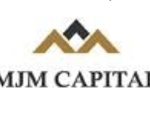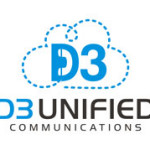When we think of start ups, we often picture a tech company that built its brand online. Nevertheless, this common notion of a start up company has changed dramatically. Keep reading to learn the evolution of start ups and investment throughout time.
Before The Dawn of the Internet
The Great Depression of 1929 was a turning point for America. Before this time, many small and large companies alike went unregulated. In fact, one of the primary theories behind the cause of that stock market collapse is based on the notion that investors did not receive full disclosure regarding the businesses in which they invested. Moreover, it appears that as a result of this lack of transparency in corporate operations, weary investors began holding on to their money, instead of investing in the stock market.
During that massive and historic depression, those brave souls who created start up businesses didn’t (and later on, couldn’t) look very far for funding. Friends and family members with money to spare may have invested in a start up. But, unfortunately, most investments didn’t go much farther than that; and attracting investors was simply done by word of mouth. At that time, investors were still unsure of the benefits of making investments.
When the Securities Act of 1933 (the “Securities Act”) was implemented in order to correct the perceived wrongs with the system, most companies who offered securities to investors were now required to be registered with the Securities and Exchange Commission (the “SEC”), unless otherwise exempt. The Securities Act was implemented in an effort to regulate business and ensure that investors had proper information before deciding to invest. Another big change implemented by the Securities Act made it illegal for start ups to generally solicit or publicly advertise the sales of securities, creating a permanent damper on start up investment strategies.
More Modern Times
When the “Dot Com” age began in the late 1990’s, many new companies began their brand online. This is when the term “start up” was truly born and part of the reason why we associate the term with technology companies.
In late 2013, the “Jumpstart Our Business Startups Act,” or JOBS Act, was first implemented. Title II of this act allows start ups to use general solicitation and advertise their securities offerings publicly, as long as sales are made only to accredited investors. Generally speaking, an accredited investor is someone who earns at least $200,000 per year (if they file singly) or has $1 million in assets (not including the value of their primary residence). As of 2013, it was estimated that there were over 10 million accredited investors in the U.S. Since the implementation of Title II of the JOBS Act, a great number of start ups have used this dramatic shift in the securities law to raise billions of dollars.
However, with nearly 230 million adults in the U.S., investments from only accredited investors can be somewhat limiting for start ups. In an effort to allow start ups even greater access to capital, the SEC approved Title III of the JOBS Act, which will allow investments from non-accredited investors (everyone else). This new rule was specifically drafted to allow for what many refer to as “equity crowdfunding” or just “crowdfunding.” Before this time, crowdfunding from non-accredited investors was not allowed unless the offering was registered with the SEC (think IPO).
Beginning in May 2016, under Title III, true equity crowdfunding will be possible. Now, instead of limiting investment opportunities to the accredited investors (which only make up about 3% of the American population), start ups can reach out to the general population.
For more information on crowdfunding and start up investments, contact PPM LAWYERS today. We can help you stay protected through the changing environment of start up fund raising.


















